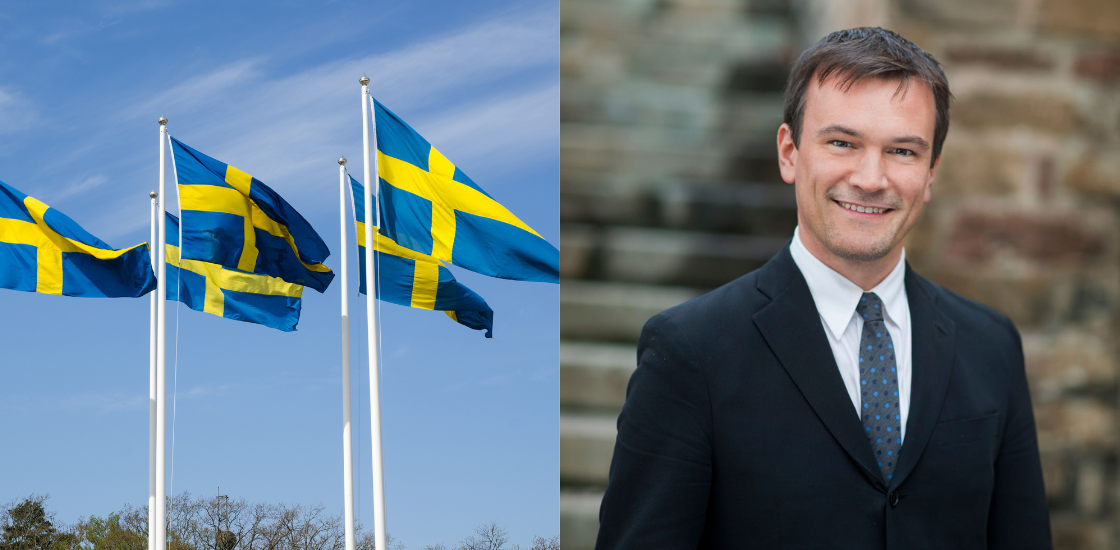Gustaf Hoffstedt: “The state underestimates the loss of players to the unlicensed gambling market”
Starting on July 1, 2024, the Swedish government plans to raise the gambling tax rate from 18% to 22% of gross gaming revenue (GGR). This decision is based on the belief that the market has stabilized since the 2019 reregulation. However, the Swedish Trade Association for Online Gambling (BOS), represented by its Secretary General, Gustaf Hoffstedt, holds a different opinion.

Risky Tax Raising?
From the very start proposal has faced criticism from the Swedish Trade Association for Online Gambling (BOS), which argued that the increased tax rate will negatively impact the market’s channelization—the proportion of gambling activities conducted through regulated operators.
BOS believes that the changes in tax regulations will bring more harm than good to the local market and the state itself. Gustaf Hoffstedt argues that the Swedish government’s projections are fundamentally flawed from the start and will not only fail to achieve the desired effects but will also negatively impact channelization, contributing to the growth of the black market.
“The state will receive increased revenue due to the tax increase, but only about half the amount the state expects. This is because the state underestimates the loss of players to the unlicensed gambling market, where the state receives no tax revenue at all,” states Hoffstedt
“This movement from the regulated to the unregulated gambling market is also estimated to create around one thousand new gambling addicts. That is people with gambling problems who, without the tax increase, would never have had any problems. The causal link here is that unregulated gambling is more risky than regulated gambling.” further commented BOS’s secretary General.
State Budget Has to be Balanced Somehow…
The arguments raised by BOS have not been heard by the authorities, who included the tax increase from 18% to 22% in the new budget proposal.
“The state budget has to be balanced somehow, and then it is tempting to raise certain excise taxes, typically on alcohol, tobacco, or gambling. This time we got hit,” said Hoffstedt.
The lawmakers’ decision is based on the belief that the Swedish market has reached a sufficient level of maturity and channelization to justify the tax increase. The decision was made despite the fact that the current 77% channelization rate is below the government’s target of 90%. According to BOS, however, the situation appears even less optimistic and the tax increase will likely boost the revenues of unregulated operators.
“The loss to unregulated operators is estimated at around two percentage points, from an already very low channelization, 57 percent for online casino.” projects BOS’s Secretary General.
Potential System Collapse
Further predictions are not very optimistic either, as experts foresee that the tax hike could ultimately lead to the collapse of the licensing system
“I don’t know what the tipping point will be, but I guess the legitimacy of the Swedish licensing system falls if channelization drops below 50 percent.” warns Hoffstedt.
The decision to increase taxes could therefore prove to be disastrous. Expecting increased revenues from gambling taxes might be a very short-sighted approach that undermines the achievements made since the regulation of the Swedish market.
“The government needs to realize the seriousness and cooperate with the regulated gambling companies to save the Swedish licensing system, instead of primarily issuing sky-high fines to licensed operators,” concludes the Secretary General of the Swedish Trade Association for Online Gambling.
Examples from other markets have already shown that overregulation leads to the opposite of the intended effect. Tax increases in a market where the level of channelization is still insufficient involve significant risks. BOS previously indicated that a 20% tax rate is the threshold beyond which tax revenues start to decline and players move to unregulated operators. Sweden has just crossed that threshold. Time will tell if this turns out to be one step too far.
